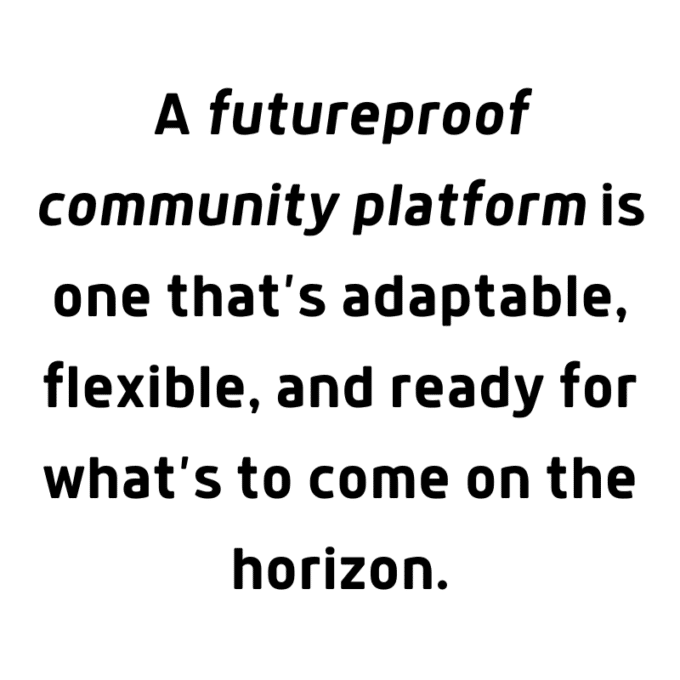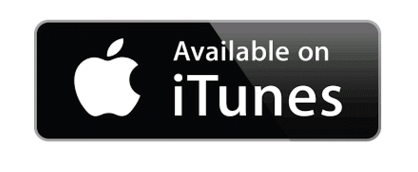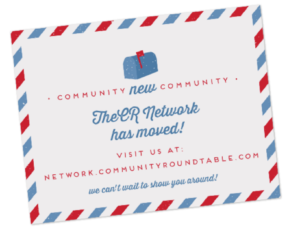As you know, your organization isn’t sitting still. And neither are your community members or
customers. Business goals change and evolve, as do your challenges, and success means adapting,
evolving, and growing as time goes on.
This guest post is sponsored content provided by Verint. Learn more about Verint here.
The same can be said for your online community platform, which isn’t meant to be a set-in-stone tool.
You need a solution that’s a foundation for self-service, customer success, and a better customer and
employee experience that can also expand and evolve in tandem with the growth of your organization
and the needs of the people who’ve come to rely on the community platform.
With Verint Community, we believe you need a “futureproof” community platform that’s built for the challenges and the changing environment that await you in the years to come. When we look at the community marketplace, we see plenty of basic solutions that may look nice at first but lack the ability to expand in functionality and scale. Many of these DIY platforms might be for something like a hobbyist community and rely heavily on a static set of functionalities that likely includes blogs, forums, and articles, but they aren’t very customizable for specific needs.
Then there’s the higher-level, pre-packaged solutions. These often provide a good starting point and have more capability and features but rely too heavily on a one-size-fits-all approach. When it comes to an online platform, this is a significant issue, because a community needs to be flexible to match the brand, personality, and specific customer needs that are unique to each organization. If you’re not able to customize, extend, and optimize your community – you’re not using a futureproof solution.

Verint Community is an enterprise-level online community platform in that it gives you everything you
need to get started but is also extensible in that it provides limitless customizations and integrations.
The open-API structure of Verint Community means that your organization can add features that meet
its needs and isn’t stuck with a set of pre-determined use cases and functions. This includes integrating
third-party channels, like social media and private messaging, video platforms, enterprise systems,
native mobile applications, workforce management tools, and your company’s customized applications.
Here’s a few ways that customers can futureproof their community and platform strategy by making the most of Verint Community’s extensibility through open API integrations:
Huddles: When users are engaging with private online community, they should be able to have their
conversations within the platform, rather than having to connect on another app. By using a Huddles
plug-in, Verint Community allows for one-on-one calling between users, group calls and meetings, and
special event capabilities that are perfect for influencers. The Huddles plug-in was developed by Verint
partner 4Roads and keeps the discussion within the community, which is especially valuable for
organizations using their community for online events, training sessions, personalized support, and
meeting needs all within Verint Community.
Mobile App: Verint’s partner 4Roads recently developed an easy-to-use mobile app that allows your
users to take your community with them on the go. This app is customizable to meet your branding
specifications, includes push notifications, a dynamic activity feed, and a sleek user interface.
Slack: Slack, of course, has become a must-have for many organizations who use it for project
management, team communication, or maybe just as a chat tool. By integrating Slack into your Verint
Community, your content shares are synchronized between the two applications. The Slack Integration
add-on created by Verint partner Social Edge Consulting features slash commands, allowing users to
interact with Slack by sending messages through a bot. This integration is just one of the ways in which
Verint Community can work with your existing tools, so you don’t have to abandon successful tools, but
rather bring them into the fold of your community.
Again, a futureproof community platform is one that’s adaptable, flexible, and ready for what’s to come on the horizon. At Verint, we see this extensibility as key to a successful community experience for your customers and employees, while also benefitting your bottom line.
Explore Verint Community’s features and get a demo right here.

 Welcome to the latest episode in our community management podcast series, “
Welcome to the latest episode in our community management podcast series, “



![Reblog this post [with Zemanta]](https://img.zemanta.com/reblog_e.png?x-id=ac480f46-d6ab-4d65-96b7-c3c7df6c4b95)
